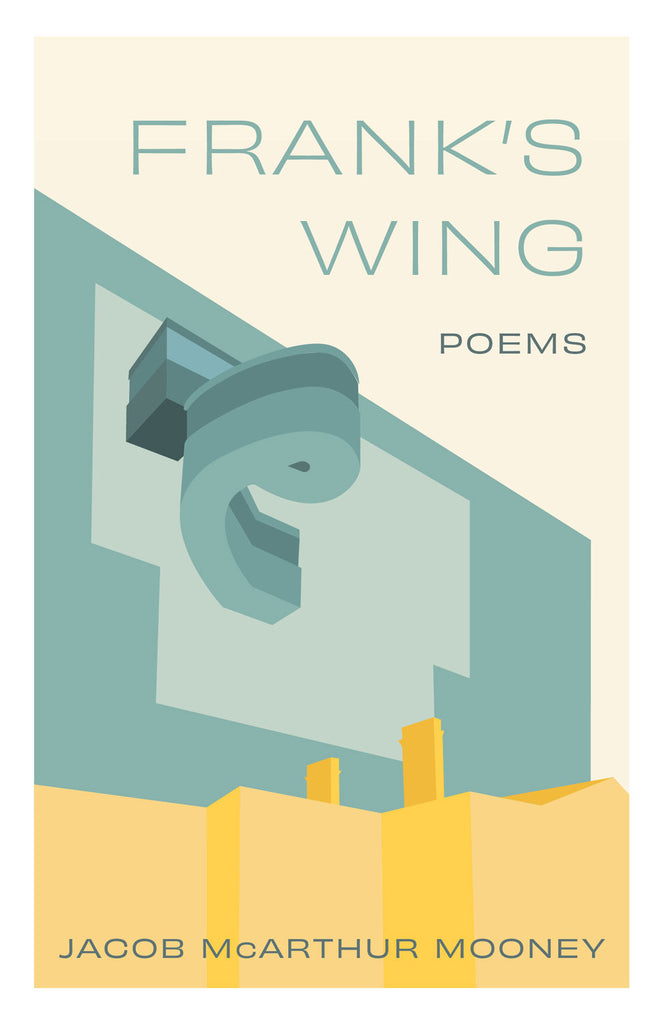
Frank’s Wing
$14.99-
“… my relationship with most art living or lost / is the same as yours: we will pass it by” bemoans the last poem in Jacob McArthur Mooney’s latest collection. Written as a sequence of “ghost ekphrastics” (poems inspired by works of art that neither the poet nor most living people have ever seen), Frank’s Wing constructs a whole world of lost or destroyed artifacts that have been rearticulated and resurrected, brought back to life by a fictional property baron as a dying gift to Toronto’s Art Gallery of Ontario.
From “decadent” modern paintings torched by Nazis, to lost films, to never-performed performance art, the abiding premise of the book is that art invites mourning: not because it is mournful, but because it is vast. It taunts the plans of mortals while “a week / of kids’ videos and lip syncs / siphon through the internet each second.” Bordering ideas about FOMO and mortality are considerations of destruction itself, as the book recalls loss events predicted by both the considered works’ historical contexts and the frailties of their makers. Concerned with consuming art as much as with making it, Frank’s Wing examines the positions made available to the art-consumer: owner, overhearer, interrogator, and potentially, both destroyer and the thing that art destroys.
BUY FROM:
Price may vary by retailer
Check availability at your local Canadian independent bookstore:
Remember that most stores can easily order books they don’t currently have in stock.
BUY FROM ECW PRESS:
Jacob McArthur Mooney’s previous collections have been shortlisted for the Trillium Book Award in Poetry and the Dylan Thomas Prize. Originally from Nova Scotia, he now lives in Toronto with his family. Frank’s Wing is his fourth book.
-
Published: April 2023
ISBN: 9781770417199
Dimensions: 5.5 x 8.5 in.
Pages: 88
Reviews
“In his entertaining fourth collection, Jacob McArthur Mooney puts a “complexifier” spin on ekphrastic poetry...As such, they give rise to reflections on the nature of art, and especially, its consumption.” — Toronto Star
